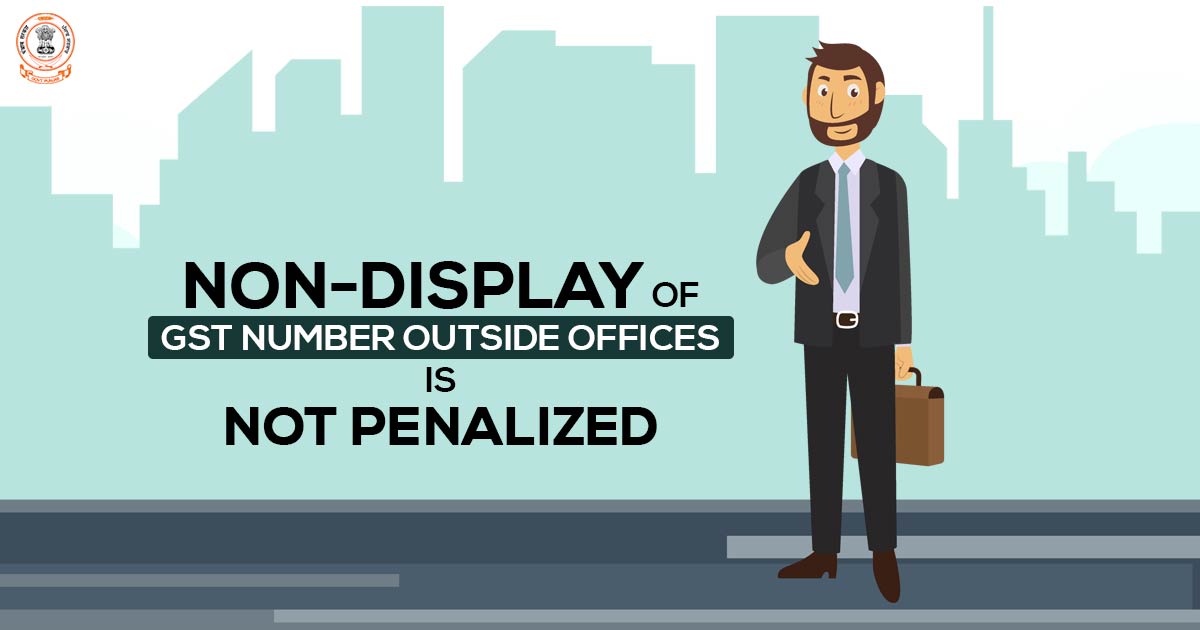
Traders and industrialists have been reassured by Punjab State Goods and Services Tax (SGST) officials that they won’t be liable to pay a fine of Rs 50,000. The stated fine was levied in case of not displaying GST identification numbers (GSTIN) outside the business setup. It was a nice decision to make them aware and a good response to business owners’ worries. Senior departmental representatives informed the business community of this information.
According to recent reports, if State GST or Central GST (CGST) teams visit a business establishment physically and find it not placing a signboard with GST number, a penalty of Rs 50,000 will be imposed on the businessmen, following the statement of Sunil Mehra, the State General Secretary of Punjab Pradesh Beopar Mandal (PPBM). These claims have sparked alarm throughout the business, even though no formal directive has been made in this regard. He said that they decided to speak with senior SGST department officials in order to avoid confusion and businessmen being harassed. The department reassured the body that they had not made such a choice.
Additionally, Mehra asked businesspeople to reach out to PPBM right once if an SGST or CGST official threatens them with such a fine. He continued saying that they have already informed higher authorities of the identities of specific officials who threatened to fine some businesspeople Rs 50,000 for failing to show their GST numbers outside of their business premises.
Parveen Goel, the district president of PPBM stated that they have received many calls and texts from traders and retailers over the past few days asking for clarity on the validity of the information circulating. He said that it is quite surprising when some field officers couldn’t explain the circumstances when asked. Therefore, it was decided that they consult with senior tax department personnel. Businessmen can now maintain their composure and prevent unnecessary panic as it has been clarified now.
According to a source with knowledge of the issue, tax investigators have discovered over 10,000 bogus GST registrations in the first week of the joint initiative. The collaborative verification process run by the State and Central Goods and Services Tax Authorities exposed instances where fake documentation, such as fake electricity bills, receipts for property taxes, and rental agreements, were used to establish a primary business location for obtaining GST registration. Although the precise size of the unlawful input tax credit has not yet been ascertained, early projections indicate it may surpass 25,000 crores.
The drive’s conclusion will result in the release of the final figures. The GST Network (GSTN), which assists state and central tax authorities in identifying potentially fraudulent GSTINs, used data analytics and risk metrics to select instances for physical verification. Small-scale industry organisations have, however, expressed worry, particularly concerning the effect on businesses using co-working facilities.
Important: Small Industrialists Worrying License Raj Amid Physical Business Verification
Representatives from the Forum for Internet Retailers, Sellers, and Traders (FIRST), India, among others, have expressed worry over the requirement for physical records and the presence of workers or directors by GST verification authorities.








